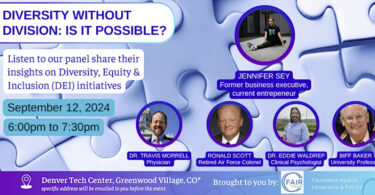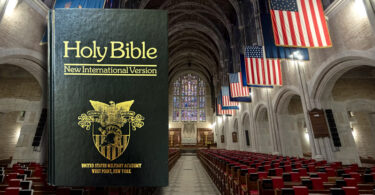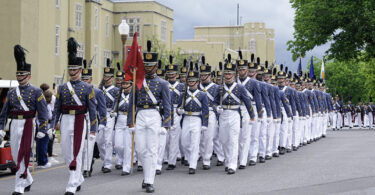By Lt Col Eric M. Vogel, USAF ret, USAFA ’73
Book review of The Dying Citizen: How Progressive Elites, Tribalism, and Globalization Are Destroying the Idea of America by Victor Davis Hanson
Victor Davis Hanson writes as he speaks: with passion, clarity, organization and reason. His latest book, The Dying Citizen, excels in all of these characteristics.
In six chapters, he masterfully explains the “why” and “how” of the demise of U.S. Citizenry in modern times.
In the first half of his book, he describes the reversion of American citizenship to three categories of “Precitizens”: Peasants, Residents and Tribes.
This trend has threatened our existence as a Constitutional Republic.
In the second half, Hanson discusses three major subgroups of “Postcitizens” who actively threaten our country. These elites are the Unelected, the Evolutionaries and the Globalists.
Clearly, Hanson loves his country. His criticisms flow from this deep love, as well as his respect for the Constitution and our form of government.
His background as a classicist and historian shines through in the details and reasoning of his arguments.
The main points of each chapter are clearly and fully stated, supported by examples of prominent individuals or groups.
In “Peasants,” the first category of Precitizens, we learn of the relapse of the United States to a country of masters and peasants, as the middle class disappears.
Marriage, child-rearing and home ownership—which usually “encourage traditional citizenship and cohesion”—have all decreased significantly. We live in an era of “prolonged adolescence and government dependence.”
But the elite—the top 10-15% of the population, the “clerisy,” the intelligentsia—need not worry.
California serves as an example of the results of this trend. The quality of schools is poor. Infrastructure suffers; as one example, priority is placed on the elusive and increasingly expensive dream of high speed rail over the basic maintenance of roads.
The proportion of the population consisting of illegal immigrants and the homeless is huge and growing. Taxes are high and increasing.
When they are able, many Californians leave the state. This is a “bifurcated and ultimately…medieval place.”
Hanson then examines the category of “Residents,” a term based on “the fact of living in a place,” as opposed to citizens, entailing a “quality, a privilege of enjoying particular rights predicated on responsibilities and not necessarily on location at any given time.”
Sadly, the distinctions have disappeared, exacerbated by mass illegal immigration.
“Undocumented” has replaced “illegal,” “migrant” has replaced “immigrant,” and now even the descriptor “undocumented” is dropped.
Several case studies highlight the hypocrisy of favoring residents over citizens.
Authorities in sanctuary cities blatantly ignore federal law (and now, in 2024, beg for federal help).
La Raza, which is “racist to the core,” is now UnidosUS, still supporting “ethnic chauvinism” which often enables illegal immigration.
Hanson closes this chapter with the thought that “citizenship, as defined by the Constitution, in some ways no longer really exists.”
Open borders are closely related to the “Tribalism” of the third and final chapter of “Precitizens.”
Our country’s “progressive turn to tribalism and primary self-identification by race and gender is reactionary to the core…identity politics is at its essence precivilizational.”
In his discussion of Marxism, class oppression, and the “long March of liberation,” he parallels the thoughts of Chrisopher Rufo (America’s Cultural Revolution), Ted Cruz (Unwoke) and Carl Trueman (Strange New World).
Multiculturalism, the woke agenda and identity politics—all elements of tribalism—must be challenged by individualism.
Turning to “Postcitizens” in the second half of his book, Hanson begins with the “Unelected.”
This group of entrenched bureaucrats and civil servants has greatly increased in size and influence in recent years.
In some ways, they are as powerful as—perhaps even more so than—the Legislative, Executive and Judicial branches of government established by the Constitution.
Furthermore, the Unelected can override, with impunity, the will of voting citizens. This is a “loose alliance of those who see themselves as permanent custodians of US power.”
The Tax Exempt Division of the IRS, headed by Lois Lerner during the Obama administration, controlled and limited conservative organizations in their applications for tax exempt status.
This is a prime example of the unelected holding themselves as a higher authority over ordinary citizens.
In another example of overreach, the EPA manipulated the Clean Water Rule to inappropriately interfere with the lives of individuals and the operations of small businesses.
Hanson’s discussion of high-ranking military officers and government officials should be of particular interest to STARRS readers.
Under Article 88 (a crime to speak “contemptuous words against the President…”) and Article 2(a)(4) (“The retired members…of the Armed Forces …are subject to the UCMJ”), Hanson maintains that retired Generals McCaffrey, McChrystal, Hayden, Allen, Myers, Powell , and Mattis, and Admirals McRaven and Mullen all violated the UCMJ. Hanson also claims General Milley violated the UCMJ while serving as CJCS.
As for high-ranking civilians, Director of the CIA Brennan and Director of National Intelligence Clapper also greatly exceeded the bounds of propriety.
(Note: Hanson does not mention Lt Gen McMaster, who spoke out against President Trump after leaving his position as National Security Advisor. McMaster and Hanson both currently serve as Senior Fellows at the Hoover Institution.)
Hanson holds the Constitution in high esteem as “the foundation of the oldest constitutional republic still in existence today.”
Focusing on the second group of “Postcitizens,” he describes “Evolutionaries” as “an army of political activists, judges, advocates, and politicians (who) currently see the US Constitution…as hopelessly outdated.”
If progressive change cannot come about by formally established and tradition legal means, this group will use: the nullification of law; the manipulation of law by court rulings; and the practice of ignoring laws, as means to reach their goals.
As an example of such action at the Federal level, the Iran Deal and the Paris Climate Accord were signed by the Executive Branch without legislative approval.
Hanson refers to this maneuver as a violation of the Constitutional duty of the Senate to concur with the signing of treaties.
Furthermore, it is Congress who declares war, yet Executive-led “police actions” prevail as substitutes for declared war.
There is no shortage of Evolutionary efforts to remake our country.
Sanctuary cities nullify Federal statutes. Prosecutors pick and choose the laws which they will enforce or ignore.
The First Amendment is attacked, with broadening interpretations of “hate speech” and increasing attempts to regulate freedom of speech. In fact, “the first two amendments are currently the most targeted of the Bill of Rights for radical changes to reflect contemporary political and ideological agendas.”
The “Globalists” is the final group of “Postcitizens.”
These “universalists,” mostly among the “wealthiest and best credentialed,” do not “believe in American Singularity.”
These elite consider themselves as world citizens, know what’s best for America and the world, and are exemplified by the attendees at Davos for the annual World Economic Forum.
There, the seminars focus on climate change, the ending of epidemics, and the problem of wealth inequality.
The World Bank, International Monetary Fund and World Health organizations are also part of the Globalist dream. Bill Gates, Michael Bloomberg and Thomas Freidman serve as notable Globalist gurus.
For Hanson, this is a type of “retrograde tribalism,” a group consisting of “westernized elites with proper credentials” who are “blind to their own antidemocratic and narrow self-interests.”
The main problem with globalism is the basic conflict with “traditional ideas of constitutional citizenship.”
Hanson has deftly categorized the main threats to citizenship—and the Constitution—in the six identity groups of Precitizens and Postcitizens of this outstanding book.
Although published more than two years ago, its message is as important as ever, even more so today.
The Dying Citizen is an explicit warning of the tragic direction of American citizenry and, as noted by the subtitle, shows “How Progressive Elites, Tribalism, and Globalization Are Destroying the Idea of America.”
Let’s hope that we remain aware of the six groups—and wake up in time.








Leave a Comment